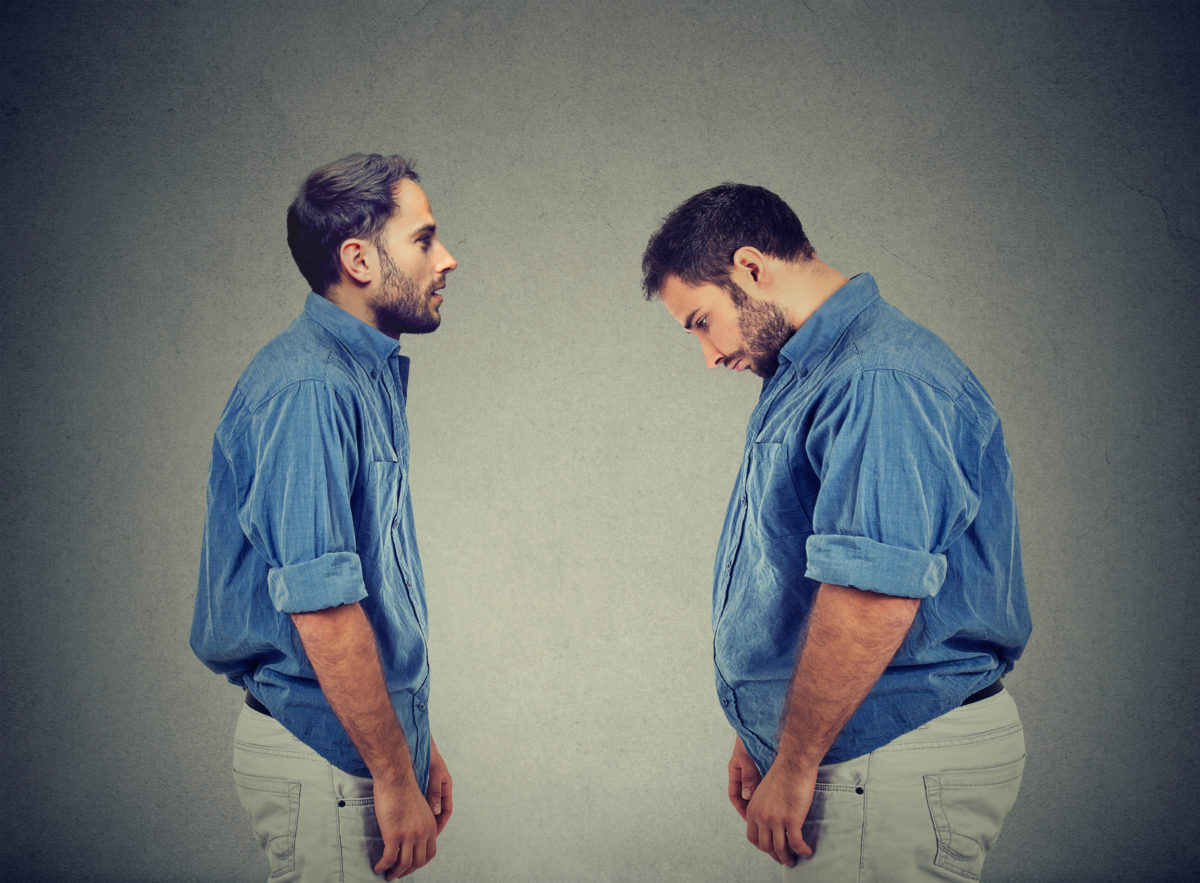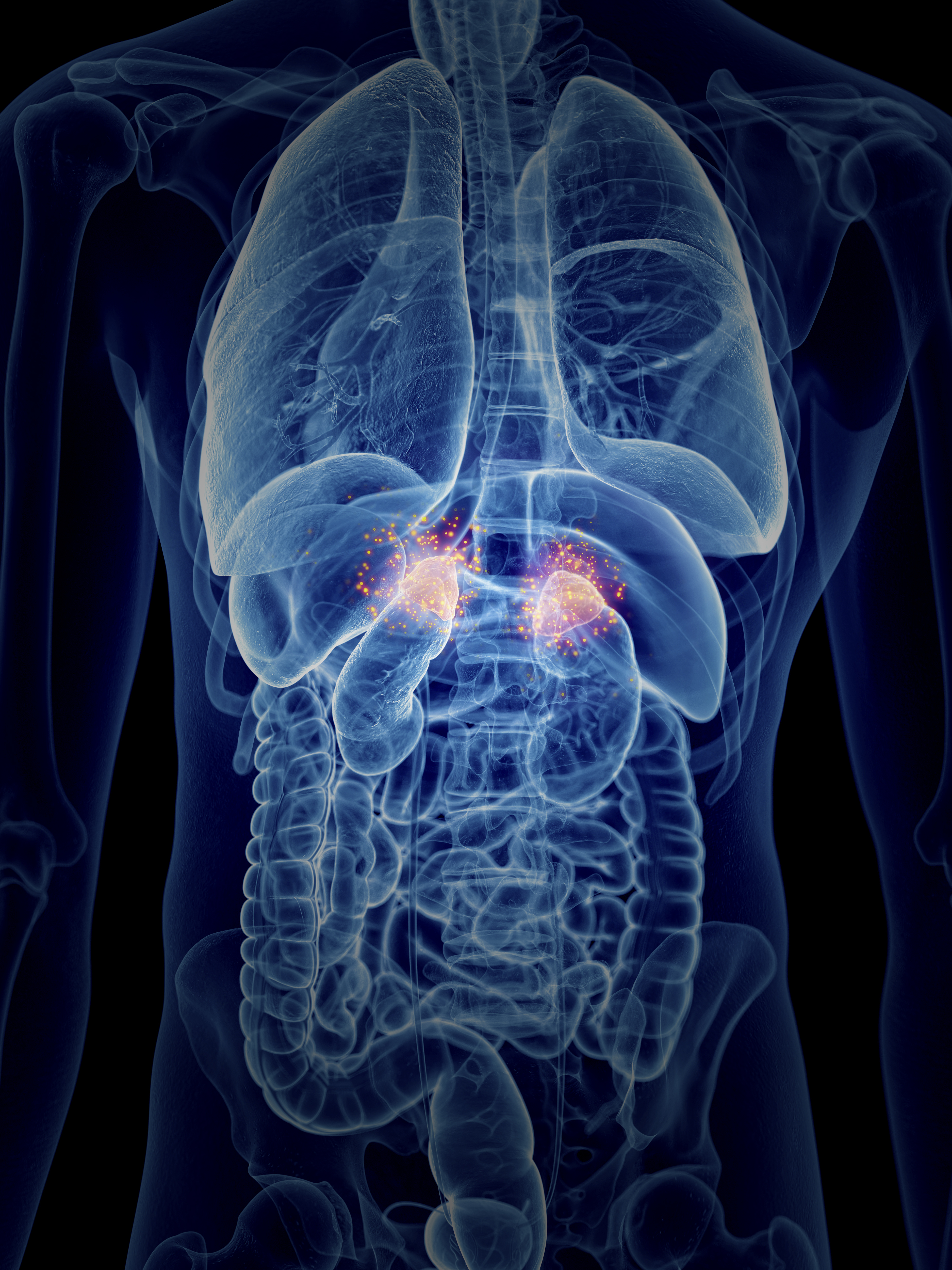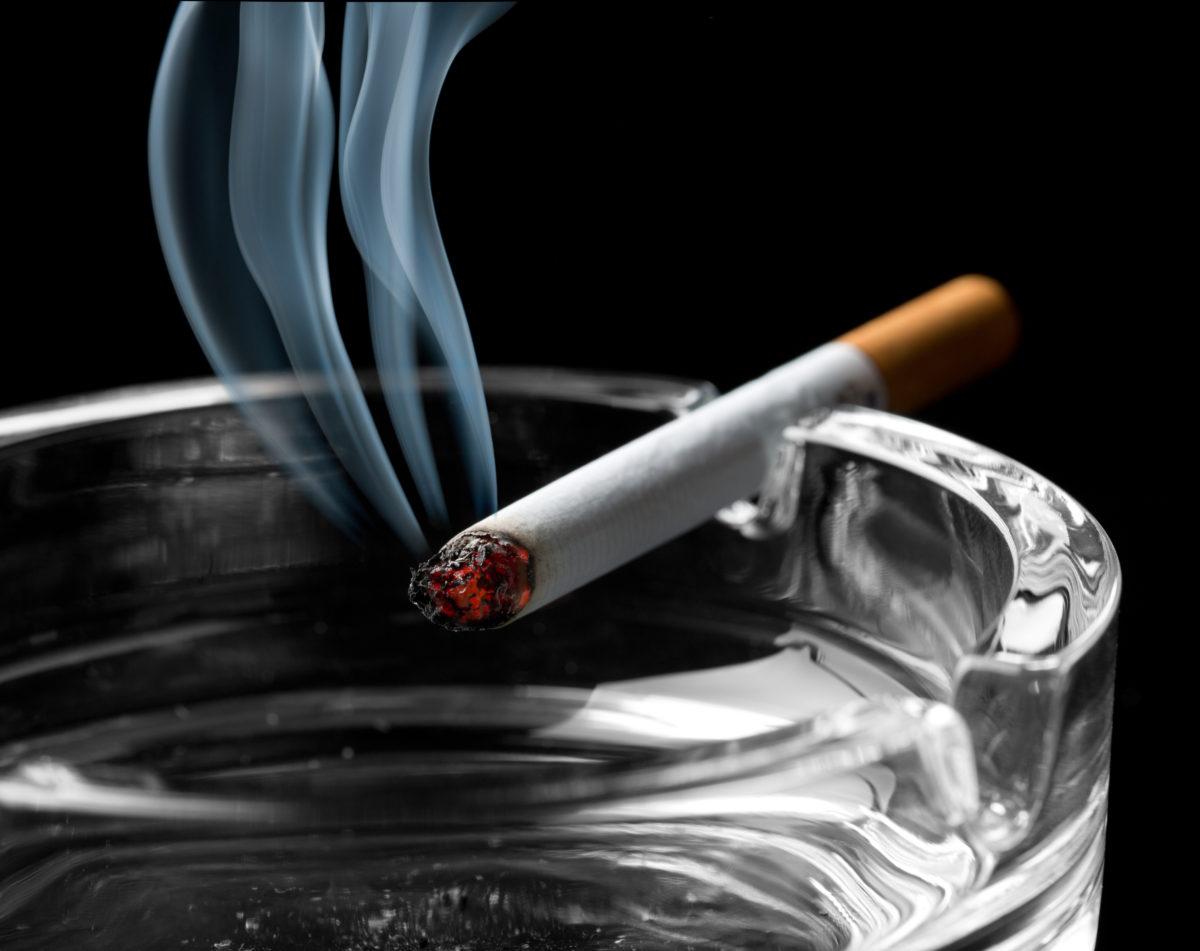5 Reasons Men Gain Weight After 30
Check out my client Alex’s transformation where he gaied a whole bunch of muscle

When looking at adult obesity rates by state and by age we see that there’s a dramatic spike in weight gain between the ages of 26 and 44 across the United States.
And even though you might think that the weight gain is just a part of getting older due to natural changes to our metabolisms, it actually has very little to do with that.
In fact, your metabolism or your basal metabolic rate which is also known as your bar only drops by about 1 to 2 percent every 10 years after you turn 20 years old.
And according to research if we exclude the changes in activity levels, muscle mass, and body fat an older adult would have just a 5 percent slower metabolism than a younger adult.
This shows that a lot of the weight gain that many people experience as they get older into their 30s and 40s is not due to some unfortunate uncontrollable circumstance that nature has pre-planned for us.
Instead, there are a number of decisions within your control that’ll allow you to either stay lean throughout your late 20’s and 30’s or cause you to gain weight.
So today I want to go over 5 reasons men, and most people, in general, both men and women will start gaining weight and body fat as they age.
First, let’s go over the real reason why so many people feel like their metabolism drastically slows down as they grow older.
Their activity levels go down. When most people blame their metabolism for weight gain they’re confusing their total energy expenditure with their resting metabolic rate.
You see your resting metabolism makes up about 50 – 70 percent of your total daily energy expenditure.
The other 30 to 50 percent is a combination of the number of calories you burn by digesting your meals also known as the thermic effect of foods,
and the number of calories you burn from physical activity while intentionally exercising and throughout the day when not intentionally exercising.
Even though your resting metabolism makes up a large part of your total amount of calories you burn per day

studies show that the main reason why total energy expenditure goes down as we get older is mostly due to a reduction in physical activity.
As we grow and get older we no longer play sports, we don’t ride our bikes, and we’re not active with friends like we used to be instead we get loaded with a ton of responsibilities.
The long hours that we used to spend being active get left behind for long hours sitting behind a computer monitor at work.
And the big reason why we trade in being active for work isn’t that we get lazier, it’s because our priorities change.
The pressure to succeed in life mounts up and if we want to achieve our ambitions we have to focus on other things outside of just ourselves and our bodies.
Around 30 more and more people get married and many people lose the motivation to stay in shape since they’re now “off the market.”

So we begin to value things other than staying in good shape. The house we live in, the kind of car we drive, the food we eat and our credit score all suddenly become more important than our health.
If you also have a family and kids not only do you have to support yourself financially, but you also have to support other people you care about.
This causes many people to push exercise and even their own health and well being down the priority ladder, and that’s a big mistake.
Most of you have heard that if something goes wrong on a flight before you can help someone else you have to help yourself by putting the mask over your face first.
Without making yourself a priority, and without making time to exercise and take care of your body, you’ll never magically just find the time.
And the longer your stop prioritizing your own health the harder it becomes to make it a priority again because of momentum.

You might even catch yourself thinking that you’ll start hitting the gym again after you’re done with a big project you have going on,
but after that big project, you always find that there’s just another one waiting around the Conner. And this applies to everything that’s keeping you busy,your life is very unlikely to get less busy with time.
So if you’re not exercising and you’re not taking care of yourself the best time to start is now and If you’re not exercising
now you’re going to add another reason to list of why you’ll gain weight with age and that’s muscle loss.
Your muscle is your armor to defend against occasional overeating and a higher calorie diet.
The more muscle you have the more protection you have against things like processed foods which According to a study from the American Journal of Clinical Nutrition, 77 percent of our grocery store purchases come from processed foods.
So no matter how much you might try to have a perfect diet all the time, if we take a look at the majority of the groceries that are being purchased it’s clear that most people aren’t going to only be eating salads, chicken breast, and quinoa.

And that’s fine, you’re going to want to eat something sweet or crispy and it’s probably going to be loaded with a lot of calories.
Your muscle mass provides protection from exceeding your daily upward limit of calories, and gaining muscle mass happens to be one of the very few ways that you can increase your resting metabolic rate.
Unfortunately, muscle loss comes with age, and studies show that on average we lose anywhere from 3 to 8 percent of our muscle mass every 10 years after 30,
but you’ll prevent most of that muscle loss just by consistently lifting weights or by engaging in other forms of resistance training.
Not only can resistance training help you gain or at the very least maintain your muscle mass as you age but it’ll also increase your caloric needs for much longer than just the length of your workout.
With a weight training workout not only will you burn calories during the workout, but you’ll also deplete the glycogen that’s stored in your muscle cells and your liver.

Later on, when you eat carbs, the glucose that those carbs are made of will be used to replenish those glycogen stores in your muscles and liver rather than stored as fat.
Also, the rate of muscle protein turnover will accelerate after a resistance training workout which is going to increase the number of calories you burn in the hours and sometimes even days after your workout.
Maintaining muscle mass as you age won’t only help you stay lean, but it’ll also help you have a better quality of life and will help prevent injuries.
According to studies the best way to prevent muscle loss is by staying consistent with your workouts and by making sure that your diet is made up of at least 25 to 30 percent protein.
And that’s another obvious reason for weight gain that we can’t ignore – diet.
Along with the new job, the new house,and the new car comes more stress, less sleep, less time and poorer dietary decisions.
When you’re busy and low on time, you might find yourself constantly eating at fast food restaurants or resorting to microwavable processed meals both of which will typically be high in calories and low in nutrients.

Too much stress raises cortisol levels making it harder to maintain muscle and lose fat. Also repeated daily stress can cause us to seek foods that are tastier and usually these foods are higher in fat and sugar.
Not getting enough sleep leads to having less energy for exercise, less impulse control when it comes to making decisions on what to eat,
and it messes with important fat loss hormones. Hormones like cortisol, which is are your stress hormone, ghrelin which is your hunger hormone and leptin which is the hormone that alerts your brain when your full,
these hormones don’t work the same when you’re sleep deprived causing you to feel hungrier throughout the day.
Researchers found that when dieters cut back on sleep, the amount of fat they lost dropped by 55 percent, even though their calories stayed the same.
Now if you’re not having your calories monitored in a lab chance are high that you’ll do even worse because according to

another study just one night of sleep deprivation can increase that hunger hormone grehlin by an average of 22 percent and it can increase as high as 32 percent.
An increase in appetite like this can definitely contribute to weight gain and a rise in body fat.
Now it’s important to keep in mind that all of these things are tied together. One of the number one ways to manage stress and to get better quality sleep is by staying physically active.
In order to care enough to take care of your body with physical activity and in order to get enough sleep you need to prioritize your health.All these things go hand in hand. Aside from getting better quality sleep, and managing stress,
If you’re a very busy person, then incorporating a diet plan like intermittent fasting can help prevent you from overeating,and I have tons of videos on how to set up your own intermittent fasting plan, that I’ll link up at the end,
but let’s get to the final reason why we get fatter as we age – changes to your hormones.

Besides all the hormonal changes caused by not sleeping enough or by stressing too much, there are other changes that will happen to your hormones as you get older.
Two major changes are lower human growth hormone levels and a drop in your testosterone levels.
To maintain good body composition, keep body fat down, and keep muscle mass up we want to ensure that these hormones stay in check.
The good news is that a professor of medicine named Gary Wittert conducted a large study at an Australian University and he concluded that “Declining testosterone levels are not an inevitable part of the aging process, as many people think.”
In this study, they analyzed the testosterone levels in more than 1,500 men by measuring T Levels twice within two visits each being five years apart. Within those 5 years, they noticed a gradual 1 percent drop in testosterone per year.
However, when the researchers analyzed the data by subgroups they found that behavioral factors seem to influence changes to testosterone much more than age.
Changes in regard to Smoking, obesity, and depression were specifically mentioned as causes for the dropping testosterone levels with age.
This again shows us that by taking care of ourselves we can avoid most of the negative changes to our hormones that come with age.
I fully believe that a 40-year old that takes good care of himself can have a way better hormonal profile than a 25-year old that treats his body like garbage.
The bottom line is that even though a lot of people put on the pounds as they age, and instead of doing something about it they blame their metabolism or other external factors outside of their control, you don’t have to be one of them.
By taking responsibility for your body and your health You can avoid weight gain as you get older.
As long as you consistently, stay physically active, incorporate resistance training, you eat a well-balanced diet with enough protein,and prioritize yourself and your health you can avoid the downhill spiral that so many people get caught in as they get older.

That’s it guys I really hope this video has helped you out. Also if you’re looking to lose some body fat with a program that’s easy to follow and has been proven to work then try my 6-week challenge.
Clients that take part in this program are losing either 20 pounds or 5 percent of their body fat in only 6 weeks.
The best part is that I guarantee you if you follow my plan from day 1 to day 42 you will not only dramatically transform your body but you’ll also get the whole program for free.
The challenge comes with a 42-day workout plan, a full video exercise library, a customized diet plan based on your preferences,
as well as a 42 recipe cookbook, and your own personal accountability coach to keep you moving along for all 6 weeks.
To find out more you can click the link below or you can visit my website directly at gravitytransformation.com
My passion for fitness began when I was 14 years old. I naturally fell in love with training and haven’t stopped since. At 18 years I acquired my first personal training certification from ACE after which I opened my first of 3 transformation studios in 2011. I love to share my knowledge through personal training, my online courses, and youtube channel now with over 3,000,000 subscribers! I can happily say that we've helped over 15,000 people get in great shape over the years. I'm always here for my customers so if you need help don't hesitate to send your questions to support@gravitychallenges.com
1. Obesity Rates By State & Age (2017):
https://www.stateofobesity.org/obesity-by-age/
2.Energy Requirements And Aging (BMR decreases 1 to 2% per decade & older adults only have an average of a 5% decrease in bmr than younger ones):
3. Changes in TEE as we age are primarily due to a reduction in physical activity:
https://www.ncbi.nlm.nih.gov/pubmed/19190667
4. Lean Healthy Elderly Men May Have a Biologic Drive to be less active:
https://www.ncbi.nlm.nih.gov/pubmed/17401138
5. Ages that men and women typically get married:
https://flowingdata.com/2017/11/01/who-is-married-by-now/
6. Muscle Mass Decreased 3-8% per decade after 30:
https://www.ncbi.nlm.nih.gov/pmc/articles/PMC3276215/#R1
7. Muscle Protein Turnover Increases After Resistance Training:
https://www.ncbi.nlm.nih.gov/pubmed/7900797
8. Repeated Stress Causes Us to Seek Tasty Food:
https://www.ncbi.nlm.nih.gov/pmc/articles/PMC4214609/
9. Sleep deprivation and fat loss:
https://news.uchicago.edu/story/sleep-loss-limits-fat-loss-study-finds
10. 1 Week Of Sleep Deprivation Can Decrease Test By 10 to 15%
https://www.ncbi.nlm.nih.gov/pmc/articles/PMC4445839/
11. Just 1 Night Of Sleep Deprivation Increases Ghrelin Levels
https://www.ncbi.nlm.nih.gov/pubmed/18564298
12. Testosterone Levels Do Not Just Because of Age:

